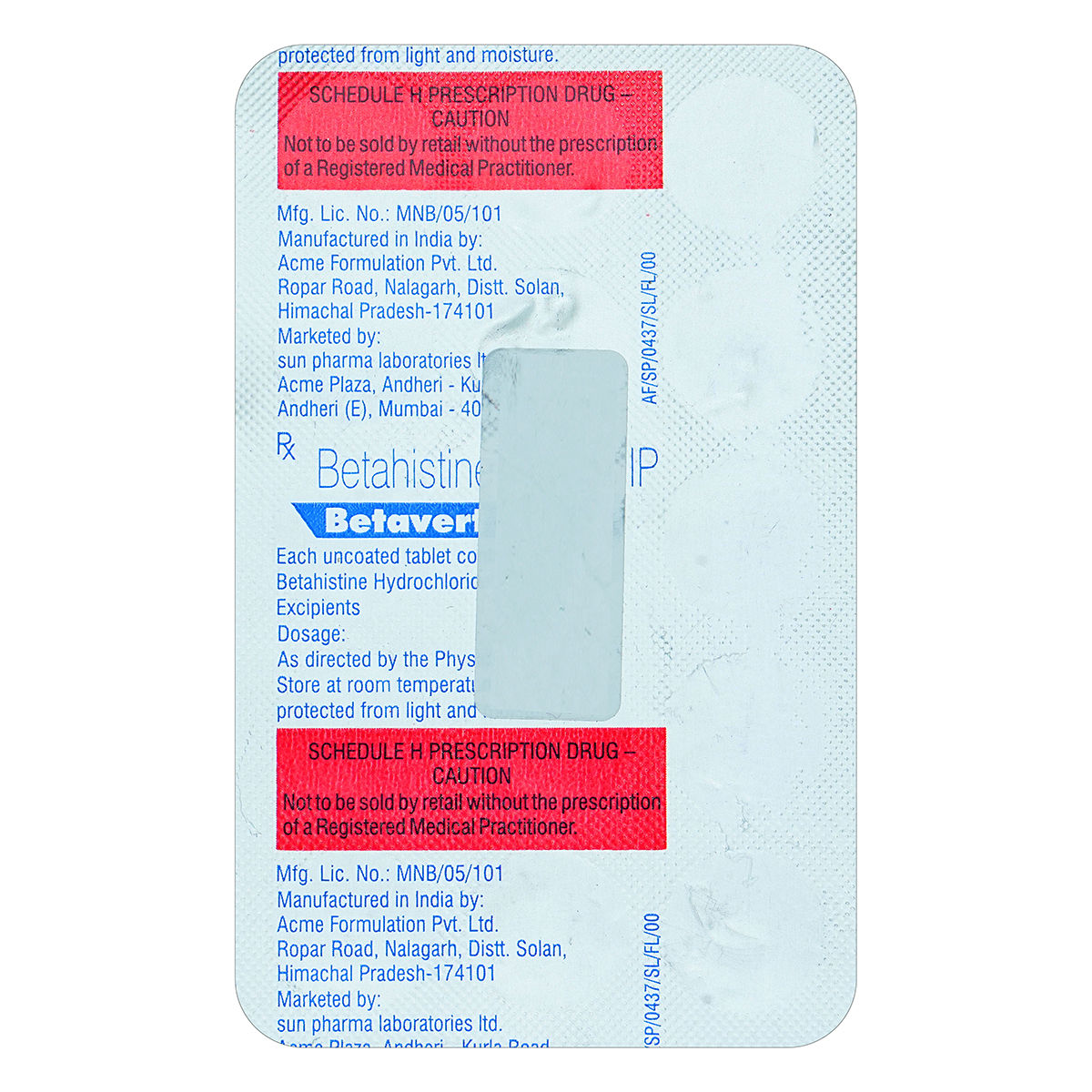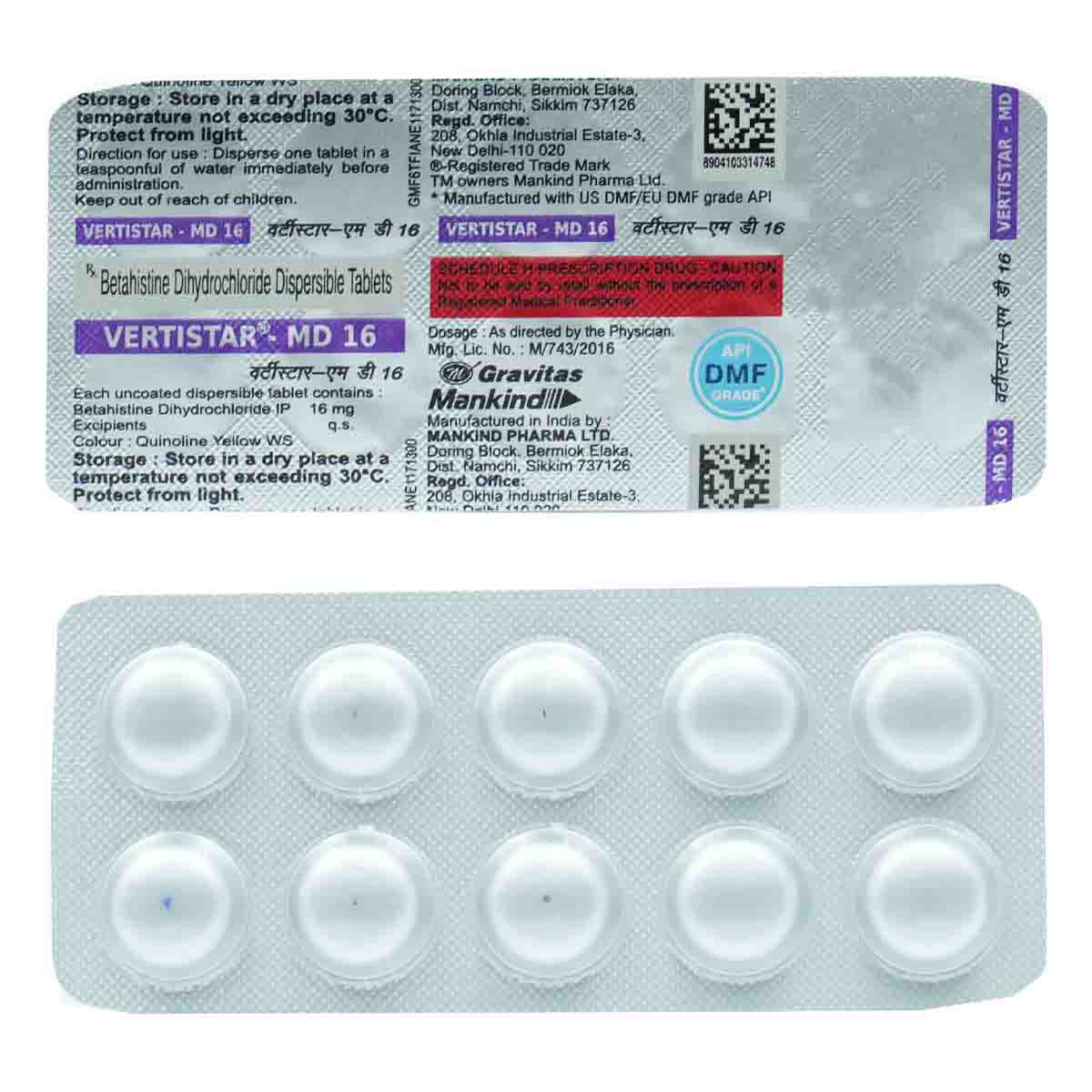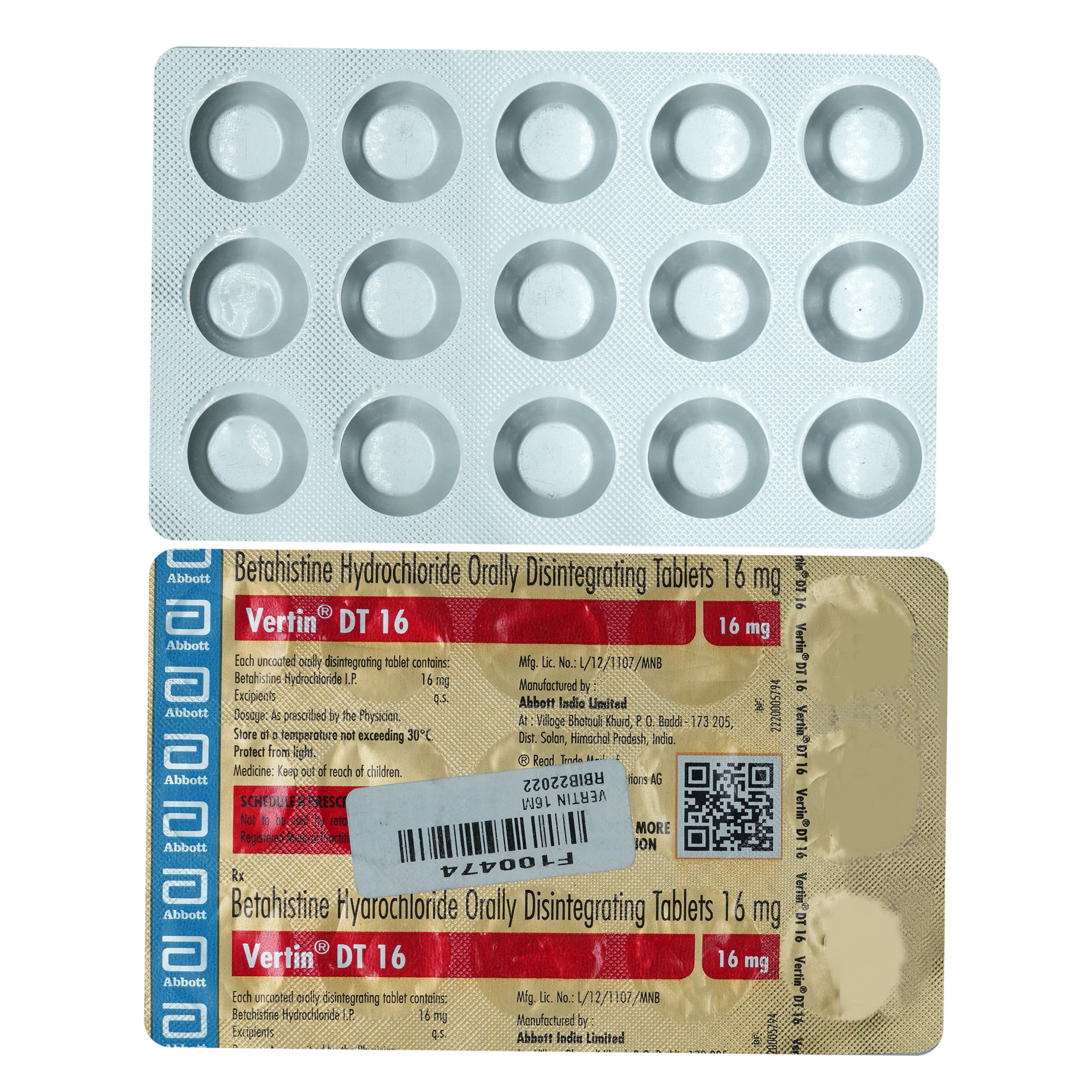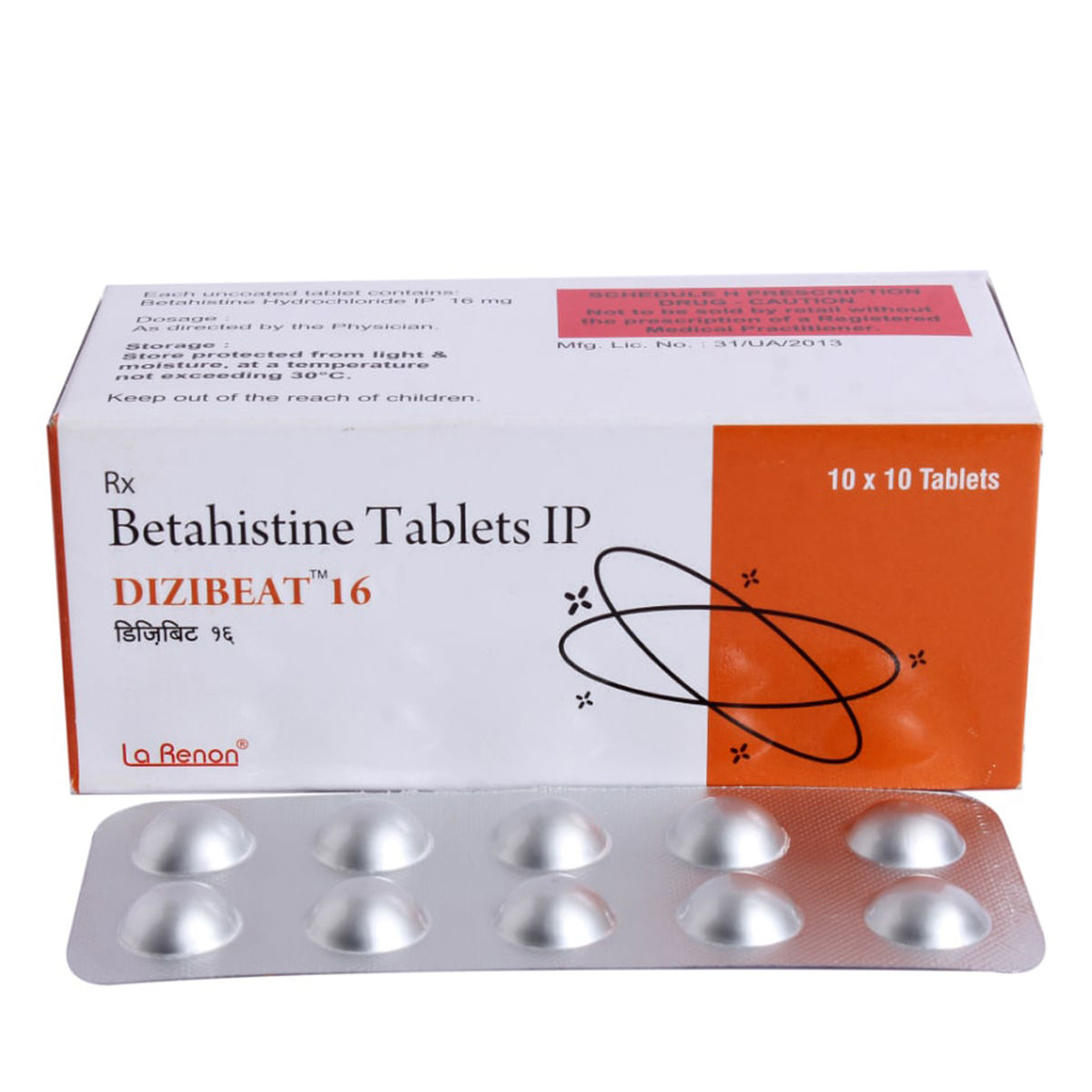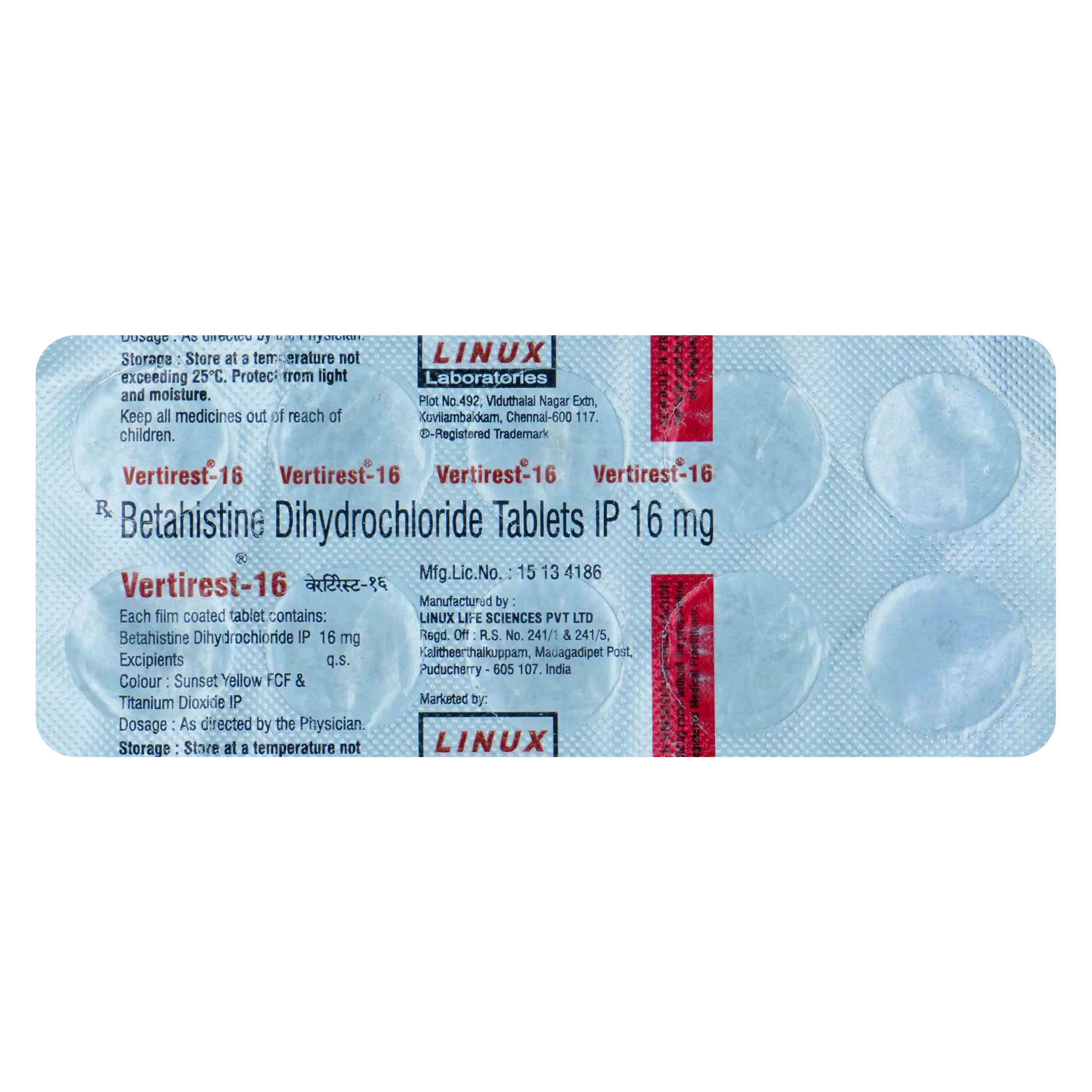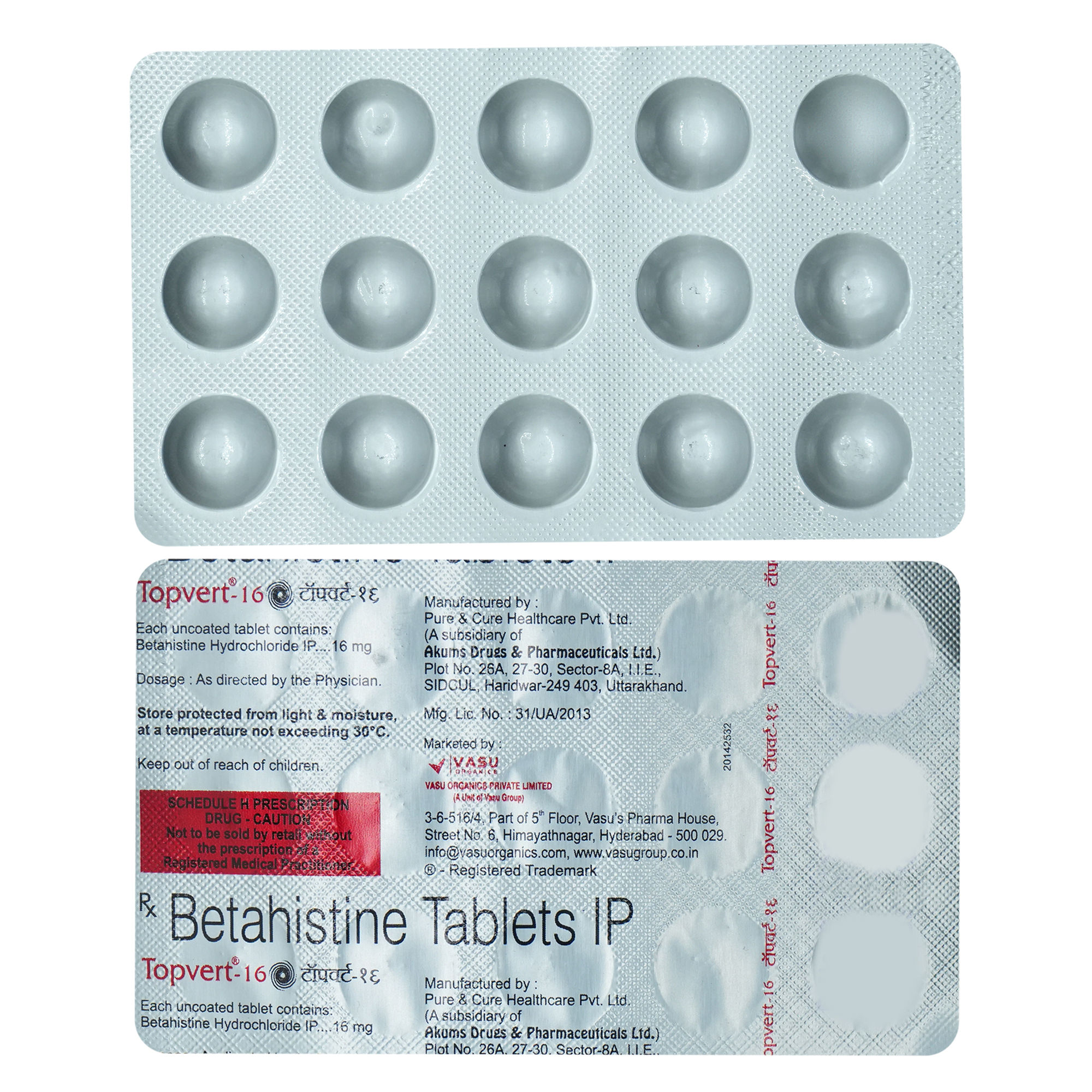Veraine-16 Tablet 10's
Veraine-16 Tablet is used in the treatment of Meniere's disease and its symptoms including dizziness (vertigo), ringing in the ears (tinnitus), feeling sick (nausea), and difficulty in hearing. It contains Betahistine, which works by enhancing the blood flow to the affected part of the ear and also by reducing the amount of fluid in the inner ear. This drug also reduces the number of attacks a person can have. It may cause side effects such as nausea, indigestion (acid reflux), bloating or mild stomach ache, and headache. Before taking this medicine, you should tell your doctor if you are allergic to any of its components or if you are pregnant/breastfeeding, and about all the medications you are taking and pre-existing medical conditions.
₹900*
MRP ₹1000
10% off
₹850*
MRP ₹1000
15% CB
₹150 cashback(15%)
Free Delivery
With Circle membership
(Inclusive of all Taxes)
This offer price is valid on orders above ₹800. Apply coupon PHARMA10/PHARMA18 (excluding restricted items)
Know Your Delivery Time
Provide Delivery Location

Whats That

Secure Payment

India's Most Trusted Pharmacy

Genuine Products
Composition :
Manufacturer/Marketer :
Consume Type :
Return Policy :
Expires on or after :
About Veraine-16 Tablet
Veraine-16 Tablet comes under the category of medications called 'antihistamine anti-vertigo medication', primarily indicated in the treatment of Meniere’s disease and its symptoms including dizziness (vertigo), ringing in the ears (tinnitus), feeling sick (nausea), and difficulty in hearing. Meniere’s disease is a medical condition that affects the inner ear caused by the building up of extra fluid inside the ear. In vertigo, a person feels that they are moving or spinning, but they are not moving. In tinnitus, a person feels a noise or ringing in their ears.
Veraine-16 Tablet compromises of Betahistine that works by enhancing the blood flow to the affected part of the ear and also by reducing the amount of fluid in the inner ear. This drug also reduces the number of attacks a person can have.
Take Veraine-16 Tablet as prescribed. Veraine-16 Tablet may cause some of the unpleasant effects that include feeling sick (nausea), indigestion (acid reflux), bloating or mild stomach ache, headache. Most of the unpleasant effects caused by this medicine do not require medical attention and will go in a couple of days. However, if the side effects get worsen with time or do not pass in a couple of days, then one should seek medical help.
Consult with your doctor before taking Veraine-16 Tablet if you have asthma, a stomach ulcer, skin rash, or low blood pressure. Veraine-16 Tablet is not allowed in patients under 18 years old. A person should tell their doctor about the medicines, herbal nonherbal products they are using. If a person is pregnant or breast-feeding or planning to be pregnant, then they can only take this medicine if prescribed by the doctor. And also tell the doctor, if you have had an allergic reaction to betahistine or any other medicines in the past.
Uses of Veraine-16 Tablet
Directions for Use
Medicinal Benefits
Veraine-16 Tablet is indicated to treat symptoms such as ringing in your ears (tinnitus), dizziness, vertigo, loss of balance, and hearing loss associated with Meniere's disease. Veraine-16 Tablet works by increasing the blood flow to your brain and by lowering the extra pressure build up in the inner ear. By easing down the symptoms associated with Meniere's disease, this drug helps a person to live their normal life.
How Veraine-16 Tablet Works
Side Effects of Veraine-16 Tablet
- Nausea
- Bloating
- Headache
- Vomiting
- Stomach discomfort
What if I have taken an overdose of Veraine-16 Tablet
Drug Warnings
Veraine-16 Tablet is not allowed to use in patients with porphyria and should be used with caution to patients with bronchial asthma. This medication is not allowed to use in children and persons who have galactose intolerance. Vertigo, tinnitus, and hearing loss are common signs of Ménière's syndrome that can harm a person's ability to drive or operate any machine. This medicine can cause mild stomach discomfort, so taking it with food can help to reduce stomach problems. Pregnant or breast-feeding females should consult with the doctor before taking this drug as the use of this medicine is only allowed in such case when benefits outweigh the risk.
Drug-Drug Interactions
Drug-Food Interactions
Diet & Lifestyle Advise
A person should limit the consumption of caffeine like tea, soda, coffee, energy drinks, etc., as caffeine can stimulate the nervous system and may worsen tinnitus.
Make a habit of waiting consistently for the whole day. One should not stay without eating for 4 hours. Limit alcohol consumption as this may reduce the chances of migraines.
Get 8 hours of sleep, which helps the body to relax completely.
A person should quit tobacco or smoking as it narrows the blood vessels and affects circulation, that may result in Ménière's disease.
Habit Forming
Therapeutic Class
Veraine-16 Tablet Substitute

Vertin 16 Tablet 15's
₹23.61per tabletBetavert 16 Tablet 15's
₹16.80per tabletZevert MD 16 Tablet 15's
by AYUR
₹18.06per tabletVertistar-MD 16 Tablet 10's
₹9.68per tabletVertin DT 16 Tablet 15's
₹21.45per tablet
Product Substitutes
Alcohol
Caution
There is no specific restriction on drinking alcohol, but some persons have reported that they have noticed a drastic improvement in their Ménière's disease after quitting alcohol.
Pregnancy
Caution
Veraine-16 Tablet can be used during pregnancy but only under the supervision of a physician. Your doctor will weigh the benefits and any potential risks before prescribing it to you. Please consult your doctor.
Breast Feeding
Unsafe
Veraine-16 Tablet is not allowed to take during breastfeeding or take if directed by the doctor as it is still under research that this medicine pass in breast milk or not.
Driving
Unsafe
Taking Veraine-16 Tablet affects a person's ability to drive so one should avoid driving.
Liver
Caution
Veraine-16 Tablet to be taken with caution, especially if you have a history of Liver diseases/conditions. The dose may have to be adjusted by your doctor.
Kidney
Caution
Veraine-16 Tablet to be taken with caution, especially if you have a history of Kidney diseases/conditions. The dose may have to be adjusted by your doctor.
Children
Unsafe
The use of Veraine-16 Tablet is not recommended in children and adolescents whose age is less than 18 years due to a shortage of data on safety and effectiveness.
FAQs
Country of origin
Disclaimer
Author Details
We provide you with authentic, trustworthy and relevant information







